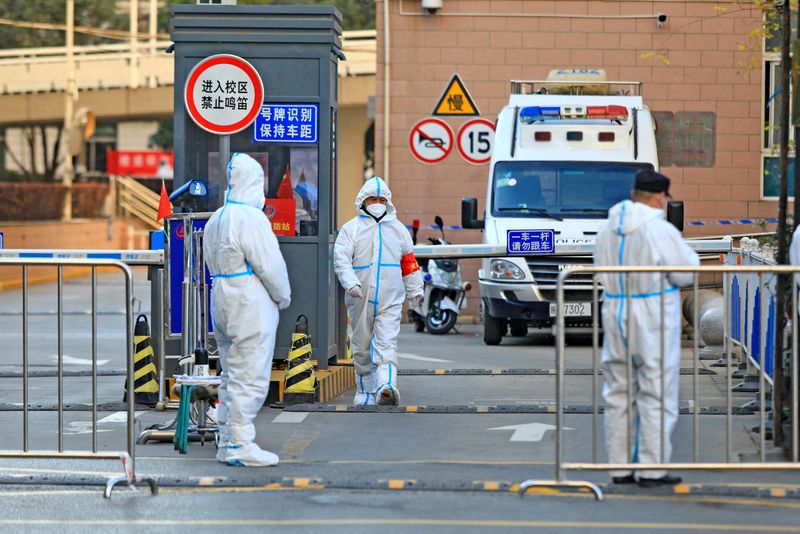BERLIN (Reuters) – German companies doing business in China are worried the Omicron coronavirus variant will trigger more strict lockdown measures from Beijing that could exacerbate supply chain problems, the DIHK Chamber of Commerce said on Tuesday.
“The Chinese strategy with targeted lockdowns has been very efficient so far,” Jens Hildebrandt, DIHK’s executive board member in China, told Reuters in an interview.
But the more contagious Omicron variant could challenge the zero-COVID approach by Chinese authorities, especially as more Chinese citizens will travel across the country due to the upcoming holiday season, Hildebrandt said.
“There will be a lot of travel despite warnings,” he said.
The International Monetary Fund (IMF) on Friday called on China to reassess its zero-COVID approach given the emergence of the highly contagious Omicron variant.
IMF Managing Director Kristalina Georgieva said the strategy, which has included sealing off entire cities with millions of citizens, had increasingly proved to be a burden for the domestic and global economy.
“The criticism of the IMF is not entirely unjustified,” Hildebrandt said.
But he added Beijing would probably stick to its zero-COVID strategy, in part because scientific studies suggested Chinese vaccines were not as effective against Omicron as mRNA vaccines from Western countries.
The DIHK’s concerns were echoed by the BDI industry association.
“Should the Omicron variant also be transmitted more quickly and easily in China, this could again become a bottleneck for global supply chains and fuel a recession in certain sectors of German industry,” BDI said in its “Global Growth Outlook” published on Monday.
With the Olympic Games starting in Beijing next week, thousands of foreigners would enter the country and increase the infection risk from Omicron, potentially leading to more strict lockdowns, BDI warned.
This could pose new challenges for producers and exporters as well as companies at the end of the supply chain, it said.
“The bottlenecks would probably also be accompanied by higher prices, which would continue to affect inflation,” BDI said. “The development of the coronavirus pandemic in China thus poses a risk for the recovery process of the German industry.”
(Reporting by Christian Kraemer; Writing by Michael Nienaber; Editing by Mark Potter)
























